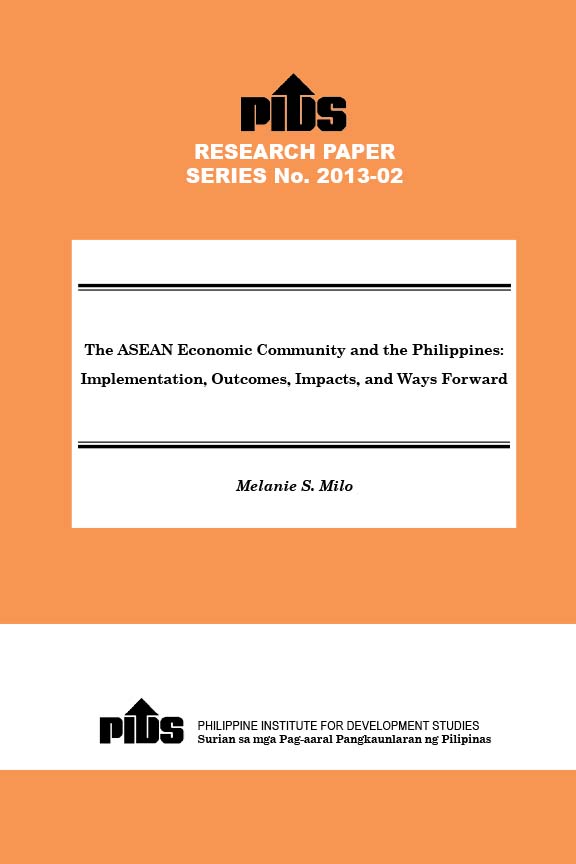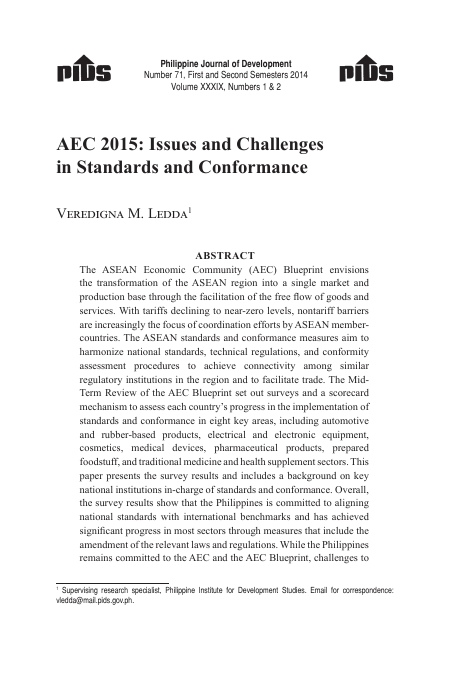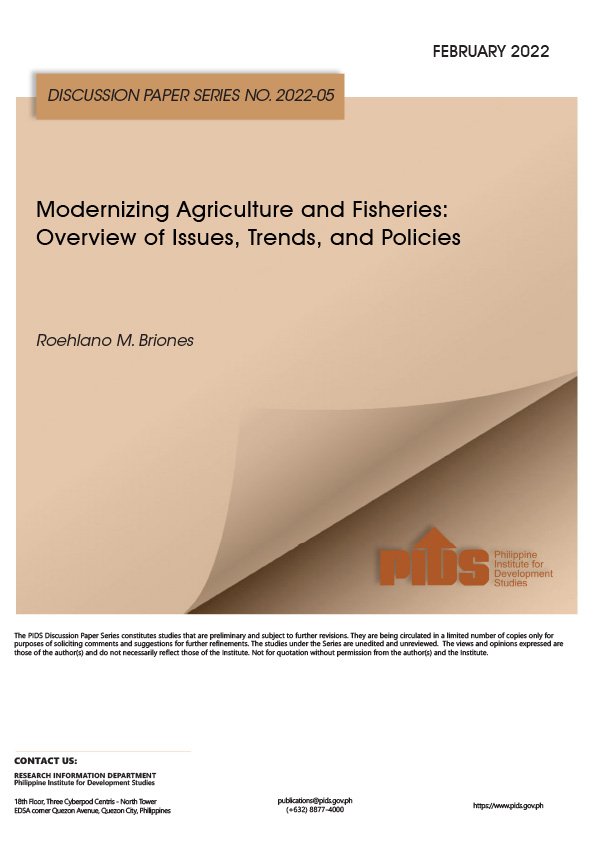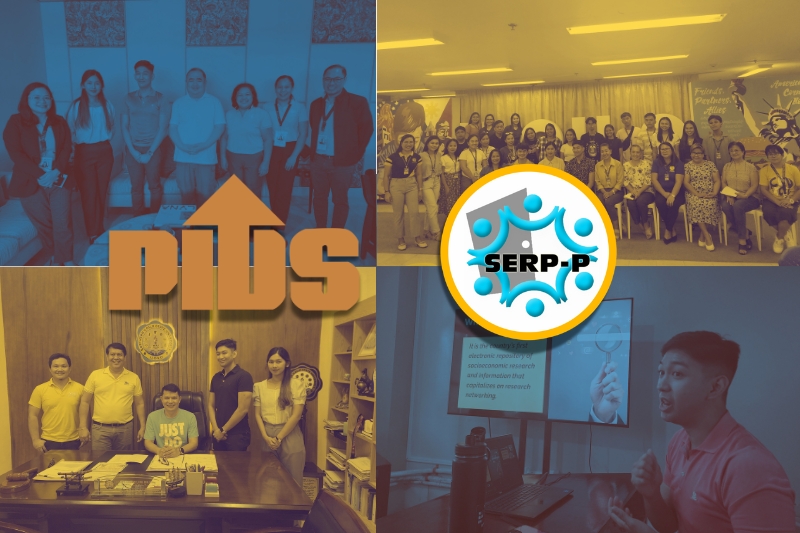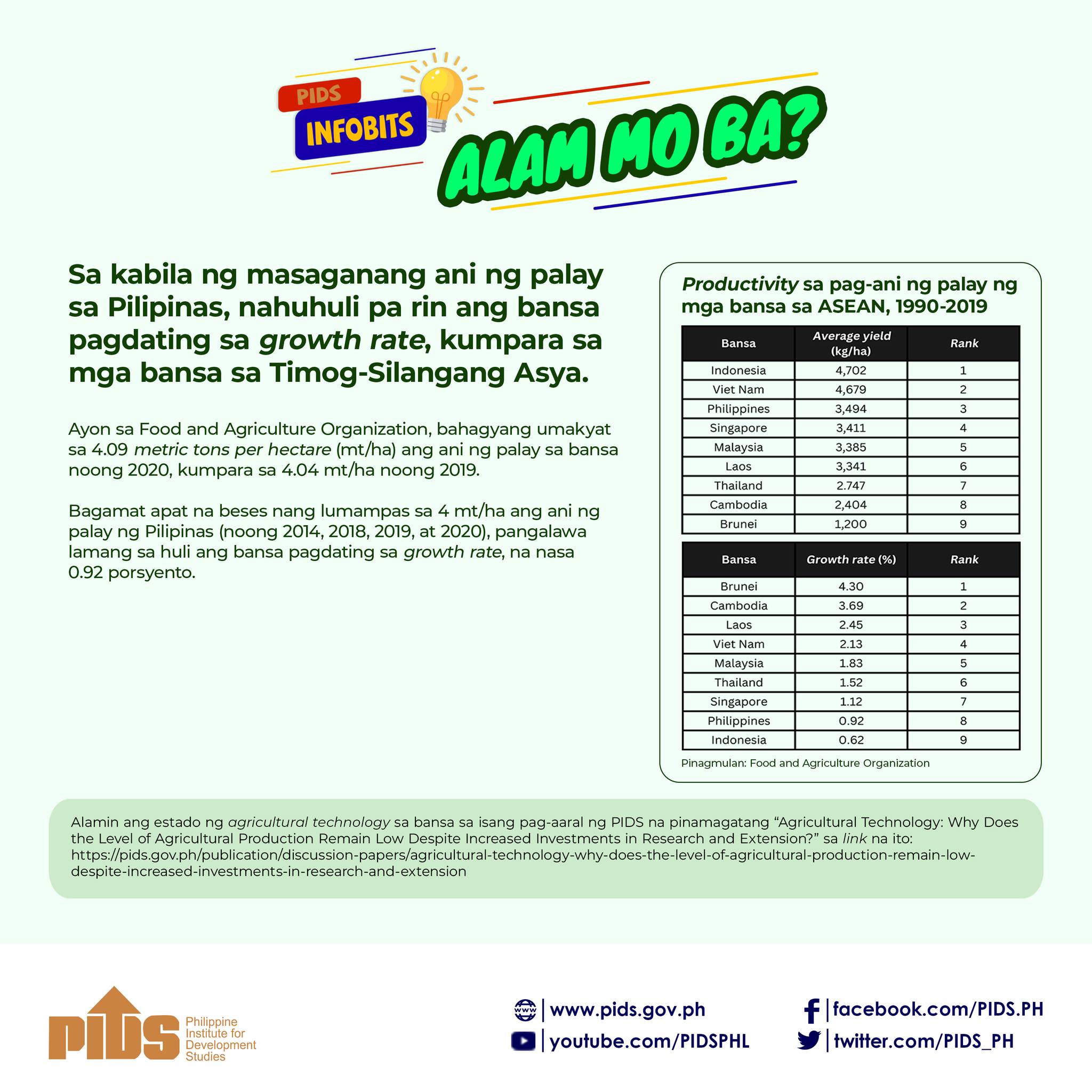The inclusive growth mantra has to be further asserted in the ASEAN Economic Community (AEC), said Dr. Cielito Habito, former Director-General of the National Economic and Development Authority (NEDA) and Chief of Party of the USAID Trade Related Assistance for Development, during the 4th Final Workshop of the ASEAN Beyond 2015, a project of the Economic Research Institute for ASEAN and East Asia (ERIA). State think tank Philippine Institute for Development Studies (PIDS) co-organized the event held at the Carlos P. Romulo Hall, NEDA sa Makati Building.
According to Habito, ASEAN trade relations must be competitive rather than complementary. "The Philippines has a predominantly intra-industry trade with the rest of the ASEAN countries, especially with its major trading partners in the region, meaning we trade in products within the same industries. The Philippines' top exports to its major ASEAN trading partners are petroleum products, electronics, and chemicals, the same products that we import in the region," Habito noted.
Habito also commented on the budget misallocation in the agricultural sector, where 70 percent of the commodity budget goes to rice yet it is only responsible for only about 16 percent of the value adding in agriculture.
He considers the growth potentials of the services sector. "The Philippines has much more growth in the services sector because there are lots of value adding within this sector such as in design and software."
Meanwhile, UP Professor Emeritus and first NEDA Director-General Dr. Gerardo Sicat accentuated the negative impacts of the country's governance and political issues on our investment performance. The changes of government have caused reversals of economic policies and the effects of these reversals were very costly, Sicat said.
Sicat explained that the Philippines is the only country in the ASEAN that has complex constitutional provisions on economic issues. "We have restrictions on capital, landownership, public utilities, and operation of land mineral resources, which not all foreign investors could deal with," he said.
PIDS Senior Research Fellow and Acting Vice-President Rafaelita Aldaba stressed that the Philippines should not rely on the services sector alone if we want economic growth to be inclusive. Aldaba noted the urgent need for the revival of the manufacturing sector to increase the country's competitiveness in the region. A more vibrant manufacturing sector also means more jobs available for Filipinos. "There has been very little movement of resources in the Philippine manufacturing sector. Its share of value added to GDP declined to 23.7 percent in the 2000s from 26.3 percent in the 1980s."
ERIA Senior Researcher Ponciano Intal noted that ASEAN competitiveness has to be strengthened to sustain high and equitable growth beyond 2015. The Philippines needs an enabling policy and regulatory environment to meet the desired targets of eliminating dire poverty, reducing poverty rates by at least two-thirds, and reducing youth illiteracy rate and malnutrition. "There should be greater focus on food security as it remains to be a significant concern in the ASEAN," Intal said.
PIDS President Gilberto Llanto stressed the need for ASEAN countries to focus on border and beyond-the-border issues. "We also need to cascade the implications of AEC 2015 to our policymakers, especially to those who still are not aware of what AEC 2015 is."
According to Habito, ASEAN trade relations must be competitive rather than complementary. "The Philippines has a predominantly intra-industry trade with the rest of the ASEAN countries, especially with its major trading partners in the region, meaning we trade in products within the same industries. The Philippines' top exports to its major ASEAN trading partners are petroleum products, electronics, and chemicals, the same products that we import in the region," Habito noted.
Habito also commented on the budget misallocation in the agricultural sector, where 70 percent of the commodity budget goes to rice yet it is only responsible for only about 16 percent of the value adding in agriculture.
He considers the growth potentials of the services sector. "The Philippines has much more growth in the services sector because there are lots of value adding within this sector such as in design and software."
Meanwhile, UP Professor Emeritus and first NEDA Director-General Dr. Gerardo Sicat accentuated the negative impacts of the country's governance and political issues on our investment performance. The changes of government have caused reversals of economic policies and the effects of these reversals were very costly, Sicat said.
Sicat explained that the Philippines is the only country in the ASEAN that has complex constitutional provisions on economic issues. "We have restrictions on capital, landownership, public utilities, and operation of land mineral resources, which not all foreign investors could deal with," he said.
PIDS Senior Research Fellow and Acting Vice-President Rafaelita Aldaba stressed that the Philippines should not rely on the services sector alone if we want economic growth to be inclusive. Aldaba noted the urgent need for the revival of the manufacturing sector to increase the country's competitiveness in the region. A more vibrant manufacturing sector also means more jobs available for Filipinos. "There has been very little movement of resources in the Philippine manufacturing sector. Its share of value added to GDP declined to 23.7 percent in the 2000s from 26.3 percent in the 1980s."
ERIA Senior Researcher Ponciano Intal noted that ASEAN competitiveness has to be strengthened to sustain high and equitable growth beyond 2015. The Philippines needs an enabling policy and regulatory environment to meet the desired targets of eliminating dire poverty, reducing poverty rates by at least two-thirds, and reducing youth illiteracy rate and malnutrition. "There should be greater focus on food security as it remains to be a significant concern in the ASEAN," Intal said.
PIDS President Gilberto Llanto stressed the need for ASEAN countries to focus on border and beyond-the-border issues. "We also need to cascade the implications of AEC 2015 to our policymakers, especially to those who still are not aware of what AEC 2015 is."

